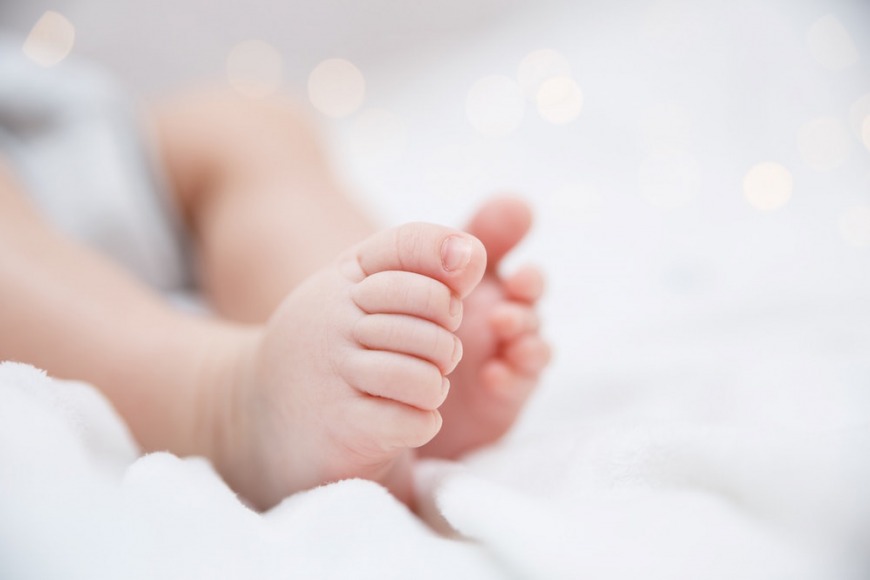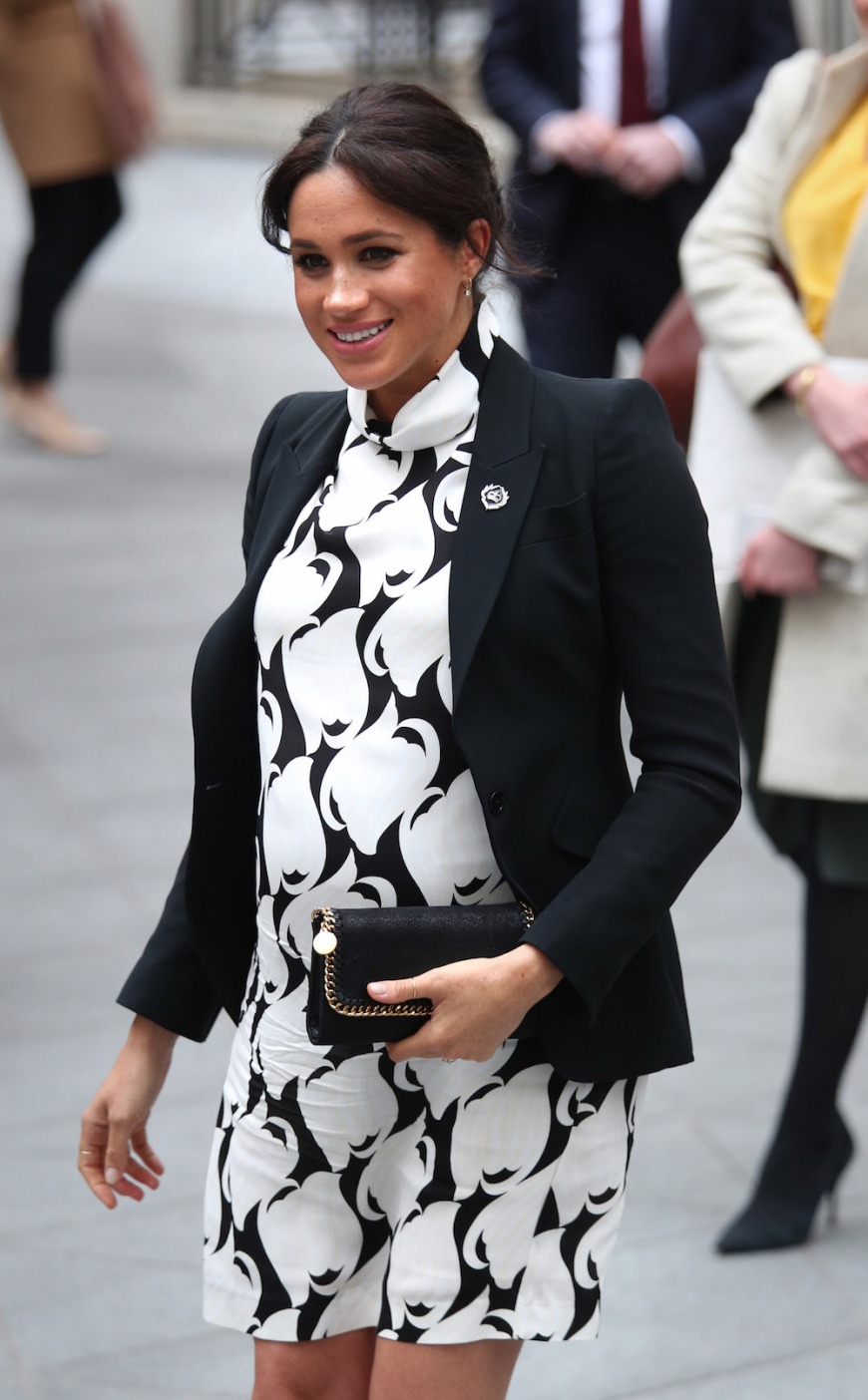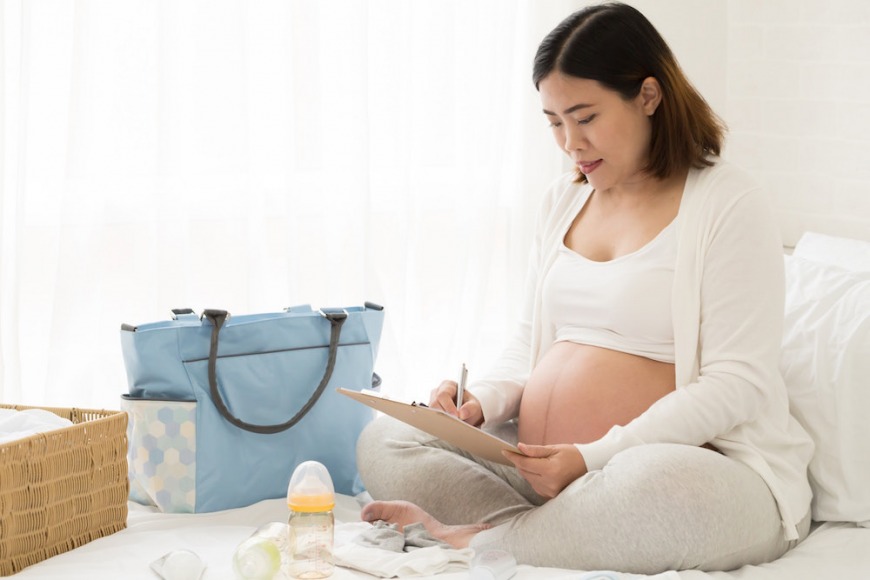Royal Baby: 4 Things That Are More Likely To Happen During First-Time Labour
As we await the latest addition to the royal brood. Here’s what Meghan can expect from her first delivery.
17 April 2019

All Credits: PA
The Duchess of Sussex could give birth any day now to her first child. One bookmaker has even slashed their odds that it could be over Easter weekend.
So, while we all wait with bated breath for the seventh in line to the throne to come into the world, what can Meghan, and other mums-to-be, expect from first-time labour?
Childbirth can be daunting for any expectant mother, but for first-time mums there all kinds of questions and unknowns. Even if you’ve read all the books and baby blogs, the fear of pain or complications can be a really daunting prospect.

It’s perfectly normal to feel apprehensive about your first labour (iStock/PA)
All women have different experiences and no two births are exactly alike – however, there are a few things that are much more common for first-time mums.
We spoke to Layla Rumble, midwife at The Portland Hospital in London (part of HCA Healthcare UK), to get the low-down on some of the key differences that are more likely to occur during a first birth compared to second, third, fourth and beyond.
1. The Duration Of Your Labour Might Be Longer
According to Rumble’s calculations, Meghan might be in the hospital (or in the care of midwives at home if the growing speculation that she’ll give birth at Frogmore Cottage is correct) for much longer than the Duchess of Cambridge was last April, when she gave birth to Prince Louis.

If it’s your first birth, labour could be long (iStock/PA)
“Many women will find that their longest birth was their first child. Various factors mean that labour can take much longer for first-time mothers, but mostly it’s because the pelvic and cervical muscles have not been stretched in this way before,” she says.
Rumble explains that for first-time mums, the first stage of labour (the cervix dilating), tends to last an average of eight hours, but for women who’ve had a baby before, the average first stage of labour is five hours. “The same is true for the second stage (pushing and birth), which lasts three hours for first-time mums compared to two hours on average [for others],” she adds.
Ultimately, the first time around, it can take a while for the body to learn what it needs to do.

Showing her bump: The Duchess of Sussex on International Women’s Day (Yui Mok/PA)
2. It’s More Difficult For The Baby’s Head To Pass Through The Birthing Canal
“We usually find that babies born to first-time mothers engage with the pelvis earlier, compared to those who have given birth before,” notes Rumble.
When your midwife talks about your baby’s head ‘engaging’, he or she will usually be referring to how far into your pelvis your baby’s head has moved down. The further down it gets, the more ready for birth you are.
“Once the baby’s head engages with the pelvis, it stays there, which is a key stage in labour,” says Rumble. “However, it is likely to be more difficult for the baby’s head to pass through the birthing canal during a first birth as the pelvic floor muscles have not been previously stretched.”

Every women’s experience with labour is different (iStock/PA)
3. You Might Feel More Stressed
Even if you’re a seemingly super-chilled, yoga-loving mum like Meghan, the thought of giving birth can still be really scary and stressful.
“As you can imagine, mums-to-be are likely to experience heightened feelings of anxiety, as well as excitement, during their first birth,” says Rumble.
“Higher levels of stress and anxiety are more common in first-time mothers during birth,” she adds, explaining that too much of the stress hormone adrenaline can be bad, as it can slow or stop contractions.
“We [as midwives] do everything to keep expectant mums as relaxed and calm as possible,” Rumble says, which is why it’s good to have one on-hand. In fact, Meghan is rumoured to have made the sensible decision of hiring both a midwife and a Doula in preparation for her first birth.

Many of first-time mums are super organised when it comes to packing ahead and birthing plans (iStock/PA)
4. …But You’ll Probably Feel More Organised
“We often find that women who are about to be mums for the first time generally have more detailed and planned birthing plans,” says Rumble. A birth plan is an overview of what you would like to happen during your labour and after the birth, which includes things like pain relief, where you’ll be giving birth and details on your birthing partner.
“Extra detail and organisation is very much a good thing, as being prepared can help reduce the negative effects of stress,” says Rumble. “This is not to say that women going through their second, third and so on births are not prepared, just that from their previous experience, they know that things can change during the birth.”
Worrying about your labour and delivery is completely normal, but having a midwife on hand, as well as the support from close friends family, can really help to keep your anxieties in perspective – however big or small they may be.

























.png?itok=SvZPqMHH)




.png?itok=uB2ieOR7)












